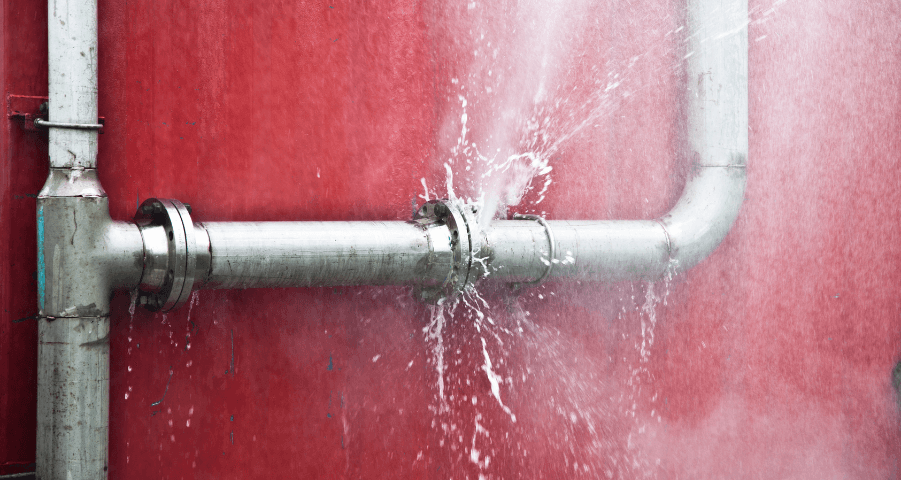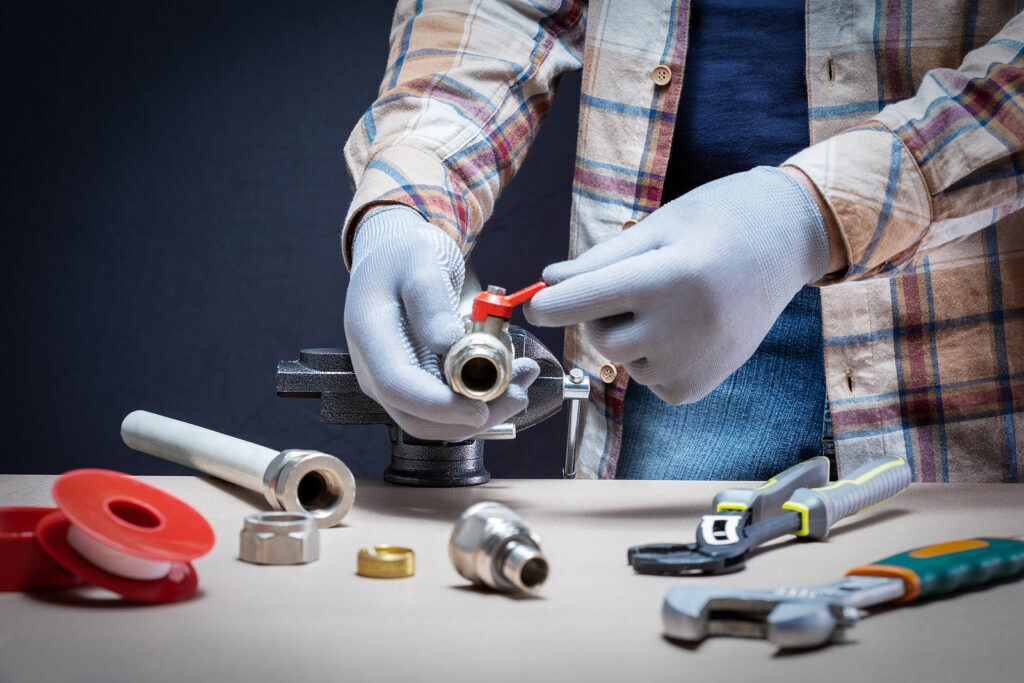The content down the page about What to Do While Waiting for an Emergency Plumber is extremely insightful. You should look it over.

Plumbing emergency situations can strike at any time, creating stress and prospective damages to your home. Whether it's a burst pipeline, a clogged drain, or a dripping faucet, understanding just how to manage the circumstance till a professional plumbing technician gets here can save you from additional difficulties. This short article supplies crucial emergency pipes pointers to help you reduce damages and reclaim control during a plumbing dilemma.
Switch off the Water Supply
The primary step in any kind of pipes emergency is to turn off the water system. For local issues, such as a leaking faucet or bathroom, switch off the shutoff near the fixture. In the case of a major leak or ruptured pipeline, situate your home's main water shut-off valve and turn it off right away. Recognizing the area of these shutoffs beforehand can save important time during an emergency.
Turn off Your Hot Water Heater
In particular emergency situations, such as a ruptured pipe, it's smart to shut down your hot water heater. This protects against getting too hot or damages to the device when water quits flowing. Turn off the power supply to the water heater (electric or gas) and let it cool down to avoid potential risks.
Temporarily Stop a Burst Pipe
A burst pipe can lead to significant water damage in mins. To alleviate the problem:
Call an expert plumbing right away to deal with the issue permanently.
Have an Emergency Plumbing Package
Prepare a standard pipes emergency set to manage minor problems properly. Your kit ought to consist of:
Having these devices handy can make a substantial distinction in your capacity to take care of emergency situations.
Unclog Drains Pipes Securely.
A clogged up drainpipe can be an irritating and unpleasant concern. Below's just how to tackle it:.
If these techniques don't function, stay clear of utilizing extreme force, as it may get worse the clog.
Handle Overflowing Toilets.
An overflowing toilet can create prompt turmoil. Right here's what you should do:.
Address Tiny Leaks with Short-lived Fixes.
Tiny leaks can promptly become substantial problems if left untreated. Use these momentary solutions up until specialist help shows up:.
While these solutions aren't permanent, they can assist decrease water loss and damage.
Deal With Frozen Pipeline Very Carefully.
In cooler climates, frozen pipelines are a typical emergency situation. If you think an icy pipe:.
Know When to Call a Specialist.
While quick fixes can help temporarily, specific pipes concerns call for immediate professional interest. Call a plumber if:.
Quickly getting in touch with an expert makes certain the concern is dealt with properly and stops additional difficulties.
Protect against Further Damage.
Taking quick action to reduce damage can save you money and time over time. Right here's exactly how:.
Final thought.
Pipes emergency situations can be overwhelming, however with the best understanding and tools, you can manage the situation effectively until help gets here. By switching off the water, resolving little leaks, and using temporary fixes, you can decrease damages and maintain your home safe. Keep in mind, these suggestions are temporary remedies; constantly seek advice from a certified plumbing professional to take care of the source of the issue. Preparation and fast reasoning are your finest allies in any pipes emergency situation.
Expert Tips for Emergency Plumbing Repairs
Plumbing emergencies can be incredibly stressful and inconvenient. Whether it’s a burst pipe, a clogged drain, or a leaky faucet, these common plumbing emergencies need immediate attention to prevent further damage to your home. But before you panic, it’s important to understand the basics of plumbing repairs and the steps you can take to address these emergencies. In this article, we will share some expert tips to help you navigate through these situations and minimize potential water damage.
Identifying Common Plumbing Emergencies
Leaky pipes and faucets Clogged drains and toilets Burst pipes Low water pressure Water heater problems Essential Tools for Plumbing Repairs
Plunger: Useful for unclogging toilets and drains Adjustable wrench: Needed for tightening or loosening nuts and bolts Pipe wrench: Ideal for gripping and turning pipes Tape measure: Necessary for accurate pipe measurements Plumber’s tape: Helps create watertight seals Understanding Emergency Plumbing Services
Emergency plumbing services are designed to provide immediate assistance for unexpected plumbing issues that can cause significant damage to your home, business, or health. These services are typically available 24/7 and are staffed by experienced plumbers who can quickly diagnose and repair a wide range of plumbing problems.
When a plumbing emergency strikes, time is of the essence. Whether it’s a burst pipe flooding your basement or a gas leak posing a serious risk, emergency plumbing services ensure that help is just a phone call away. These professionals are equipped with the tools and expertise to handle any situation, minimizing damage and restoring your plumbing system to proper working order.
What Constitutes a Plumbing Emergency?
Burst pipes or water supply lines: These can cause extensive water damage and need immediate repair to prevent flooding. Gas leaks or suspected gas leaks: Gas leaks are extremely dangerous and require prompt attention to avoid potential explosions or health hazards. Sewer backups or overflows: These can lead to unsanitary conditions and significant property damage. Clogged drains or toilets causing water to overflow: Overflowing water can damage floors, walls, and other structures. Leaks or water damage causing structural damage: Persistent leaks can weaken the structural integrity of your home or business. No hot water or heating: A lack of hot water can be more than an inconvenience, especially in colder months. Common Causes of Plumbing Emergencies
Aging or corroded pipes: Over time, pipes can deteriorate, leading to leaks or bursts. Improperly installed or maintained plumbing fixtures: Faulty installations or lack of maintenance can result in unexpected failures. Tree roots or other debris infiltrating your sewer line: Roots can grow into pipes, causing blockages and backups. Frozen pipes or water supply lines: In colder climates, pipes can freeze and burst, leading to significant water damage. High water pressure or sudden changes in water pressure: Excessive pressure can strain pipes and fixtures, causing them to fail. Natural disasters such as floods or earthquakes: These events can disrupt your plumbing system and cause severe damage. Steps to Minimize Water Damage
Locate the water shut-off valve: Knowing where the valve is can help you quickly cut off the water supply to the affected area. Turn off the water heater: If there’s a risk of water coming into contact with the heating element, make sure to turn off the water heater to avoid potential accidents. Open faucets and drain pipes: By opening faucets and drain pipes, you can relieve pressure and empty any standing water. Collect and contain water: Use towels, buckets, or bins to collect water and prevent it from spreading to other areas of your home. https://leecountyplumbingandwellservice.com/expert-tips-for-emergency-plumbing-repairs/

Do you really like more info about What to Do While Waiting for an Emergency Plumber? Put a remark down below. We would be delighted to see your suggestions about this blog post. We are looking forward that you visit us again before long. Please take a moment to distribute this blog post if you liked it. I am grateful for being here. Don't hesitate to come visit our site back soon.
Click Here